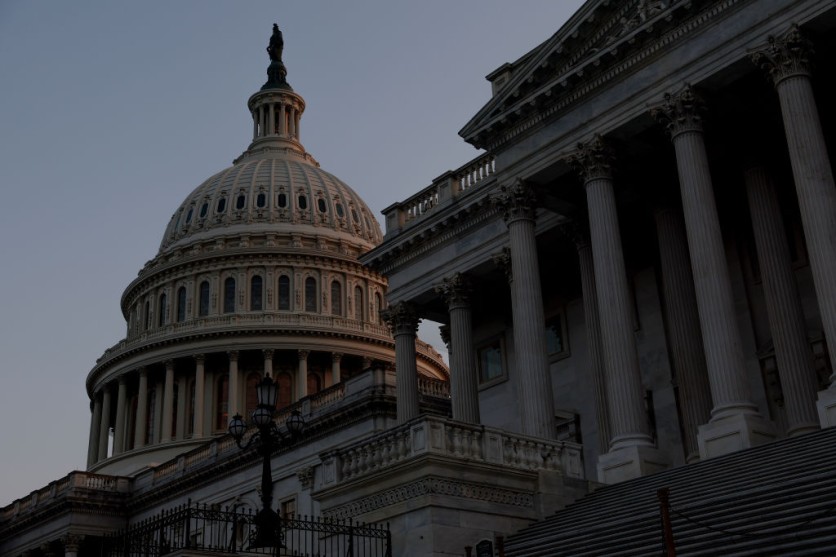The Senate's advancement of the vote on extending the surveillance program without warrants marks a significant step in the legislative process.
This action underscores the ongoing debate surrounding the balance between national security concerns and individual privacy rights.

WASHINGTON, DC - JUNE 01: The U.S. Capitol Building on June 01, 2023 in Washington, DC. The Senate reached an agreement to vote on 11 amendments to The Fiscal Responsibility Act before voting on passage of the legislation. (Photo: Anna Moneymaker/Getty Images)
Senate's Debate on Reauthorizing Section 702 of FISA
The Senate is set to discuss the reauthorization of Section 702 of the Foreign Intelligence Surveillance Act (FISA). The Verge reported that this allows surveillance of foreign targets without warrants.
Before voting on the reauthorization bill, senators needed to vote on a cloture motion to proceed with voting. The cloture motion passed with a vote of 67-32, just one day before the program's expiration deadline.
As the expiration of Section 702 looms closer, certain senators stress the urgency of the situation, urging their peers to support the reauthorization effort. Senator Mark Warner (D-VA) underscored the gravity of the matter, emphasizing the need to prevent it from lapsing.
Despite acknowledging potential amendments to the House bill, as reported by The New York Times, Warner highlighted the pivotal choice facing lawmakers: either pass the bill or allow Section 702 to expire.
Warner was alluding to the House bill, which successfully passed on April 12th following several unsuccessful attempts. Notably, the bill does not include an amendment proposed by a bipartisan group of House members.
This amendment aimed to mandate federal intelligence agencies to secure a warrant prior to accessing data belonging to Americans. Despite garnering support from both sides of the aisle, the amendment narrowly failed to pass, with a tie vote of 212-212.
Examining Amendment, Potential Impacts
In March, Senator Dick Durbin (D-IL) put forth a complementary warrant stipulation in the Senate. This Durbin amendment presents a nuanced approach compared to the unsuccessful House amendment.
It mandates that intelligence agencies acquire FISA Title I orders or warrants prior to accessing Americans' communications under Section 702, excluding querying for those communications.
There are reports that the Biden administration is circulating a letter among senators asserting that the Durbin amendment poses a "national security threat."
Despite Warner's urgency for swift Senate action without the warrant requirement amendment, the reality is that even if reauthorization fails, Section 702 will remain operational for another year. This extension was granted by the FISA court on April 5th, allowing the program to continue until April 2025.
A different amendment proposed by Reps. Mike Turner (R-OH) and Jim Himes (D-CT) found its way into the bill, broadening the definition of "electronic communications service (ECS) provider." The updated definition now includes "any service provider" that has access to equipment used for transmitting or storing wire or electronic communications.
National Security Advisor Jake Sullivan urged the Senate to dismiss any misinterpretations of the amendment, which critics argue effectively turns ordinary Americans into government informants. Senator Ron Wyden of Oregon voiced apprehension about the amendment, pointing out its potential ramifications.
He noted that the amendment could empower the government to enlist any American who handles communication devices to gather information without judicial oversight. Senator Warner also commented on the amendment's drafting during a Senate session, referencing a letter from Attorney General Merrick Garland.

ⓒ 2026 TECHTIMES.com All rights reserved. Do not reproduce without permission.




